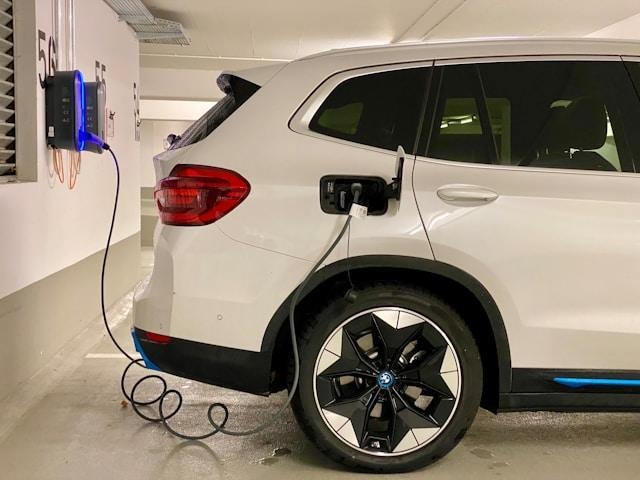The dusty trails of Big Bend beckon one weekend, while the next finds you navigating Houston's bustling highways. Your Land Rover serves as the perfect companion for both adventures, but this dual-purpose lifestyle demands thoughtful maintenance strategies. Whether conquering rocky inclines or cruising interstate highways, your vehicle requires specialized care that addresses the unique demands of varied terrain.
Understanding Your Land Rover's Dual Nature
Land Rovers stand apart from typical SUVs through their sophisticated engineering that balances luxury with capability. These vehicles feature advanced systems designed to transition seamlessly between smooth pavement and challenging trails. The Terrain Response system, adaptive dynamics, and intelligent four-wheel drive work in harmony, but each component requires specific attention to maintain peak performance.
Regular highway driving subjects your vehicle to sustained high speeds, constant vibrations, and exposure to road chemicals. Meanwhile, trail adventures introduce entirely different stressors: extreme suspension articulation, underbody impacts, and exposure to dust, mud, and water. This combination creates maintenance needs that standard service schedules don't always address.
Your suspension system bears the brunt of diverse driving conditions. Highway miles gradually wear bushings and dampers through countless small movements, while trail use can cause sudden, dramatic stress on components. Professional technicians recommend comprehensive suspension checks every 15,000 miles for vehicles regularly transitioning between environments.
Key inspection points include control arm bushings, which deteriorate faster under mixed-use conditions. Air suspension systems, common in modern Land Rovers, require particular attention to air springs and height sensors. These components work overtime when switching between highway cruise settings and elevated off-road positions. Electronic dampers also need evaluation to ensure they're responding appropriately to changing terrain inputs.
True off-road readiness extends beyond having proper tires and recovery gear. It starts with systematic preparation of your vehicle's core systems. The cooling system faces extreme challenges when crawling through difficult terrain at low speeds, where airflow diminishes while engine load increases. Technicians check coolant concentration, inspect hoses for weak spots, and verify fan clutch operation.
Differential breathers deserve special attention for vehicles that ford water crossings. These small but critical components prevent water intrusion that could contaminate gear oil and cause expensive damage. Similarly, transmission cooling lines require inspection for damage from trail debris, as a failure here could leave you stranded miles from assistance.
The drivetrain endures tremendous stress when transitioning from highway cruising to rock crawling. Transfer cases work hardest during low-range operation, making fluid changes crucial at shorter service intervals than manufacturer recommendations suggest. Professional Land Rover repair specialists often suggest halving standard intervals for vehicles seeing regular trail use.
Constant velocity joints and driveshafts face unique challenges in mixed-use scenarios. Highway speeds create heat buildup in CV boots, while extreme articulation on trails can tear compromised rubber. When seeking Land Rover auto repair central Texas specialists understand these regional terrain challenges, from Hill Country limestone to coastal sand, ensuring comprehensive drivetrain inspections that account for local conditions.
Universal joints require careful attention, particularly in rear driveshafts that experience significant angle changes during suspension travel. Technicians check for play that might go unnoticed during routine driving but could cause failure under trail stress. Front differentials in full-time four-wheel-drive models need regular fluid analysis to detect early wear from constant engagement.
Safety on varied terrain depends on multiple interconnected systems functioning properly. Brake components face unique challenges when descending steep grades relies on Hill Descent Control, which applies repeated brake applications automatically. This technology works brilliantly but accelerates pad and rotor wear compared to normal driving patterns.
Electronic stability systems require calibration checks, especially after suspension modifications or significant trail use. Wheel speed sensors, often exposed to debris and water, need cleaning and testing to ensure traction control systems respond appropriately. Steering components, particularly tie rod ends and drag links, experience accelerated wear from the constant corrections required on rough terrain.
Standard service intervals assume typical driving conditions that rarely match reality for adventure-oriented Land Rover owners. Severe duty schedules better suit vehicles splitting time between highways and trails, but even these recommendations need adjustment based on your specific usage patterns.
Engine air filters clog rapidly in dusty trail conditions, potentially causing reduced power and fuel economy. Rather than following mileage-based replacement schedules, monthly visual inspections provide better guidance. Similarly, cabin air filters work overtime filtering trail dust, affecting HVAC system performance and interior air quality.
Fluid services require careful consideration of both time and mileage factors. Engine oil breaks down faster under the heat stress of slow trail driving, while transmission fluid suffers from the constant shifting required in technical terrain. Land Rover repair technicians can analyze fluid samples to establish optimal change intervals for your driving patterns.
Your Land Rover's remarkable capability comes from sophisticated engineering that demands equally sophisticated maintenance. By understanding how varied terrain affects different systems and adjusting maintenance accordingly, you preserve both performance and reliability. Professional Land Rover repair services that comprehend these unique challenges become invaluable partners in keeping your vehicle adventure-ready.
Remember that proactive maintenance prevents breakdowns far from home, transforming potential disasters into minor inconveniences addressed during routine service. Whether your next journey leads to remote trails or distant cities, proper preparation ensures your Land Rover remains the reliable adventure companion it was designed to be.




Want to add a comment?